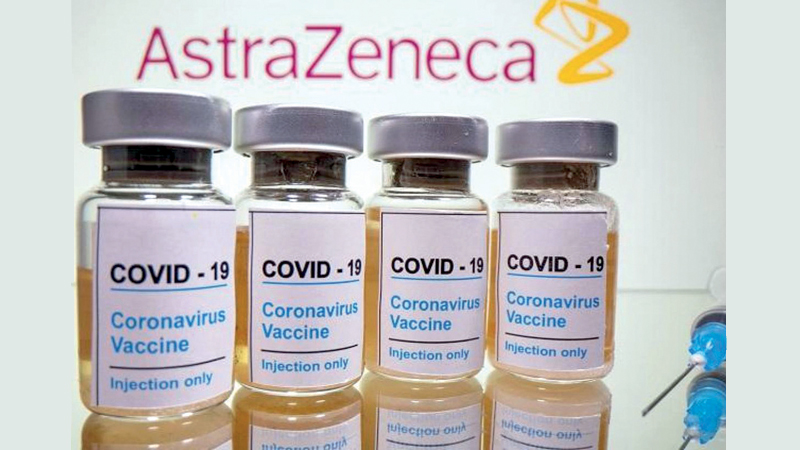Denmark will stop administering the AstraZeneca COVID-19 vaccine, health officials said Wednesday.
In a statement, the Danish Health Authority emphasized that the shot's benefits outweigh the risks for those who do get it, but said they had decided to discontinue its use because of its possible link to rare cases of blood clotting and the "fact that the COVID-19 epidemic in Denmark is currently under control and other vaccines are available."
"Based on the scientific findings, our overall assessment is there is a real risk of severe side effects associated with using the COVID-19 vaccine from AstraZeneca," said Søren Brostrøm, director general of the Danish Health Authority. "We have, therefore, decided to remove the vaccine from our vaccination [program]."
All AstraZeneca vaccination appointments will be cancelled, and those who have already received their first dose will get their second in the form of another vaccine, officials said. Individuals who have had forthcoming appointments cancelled will be able to reschedule "based on an assessment of the current epidemic situation." "The consequence of this decision is that anyone aged 16 or older can expect to receive an offer of vaccination in late June," officials said. "Thus, everyone who accepts the offer will be fully vaccinated about five weeks later – in early August."
COVID-19 cases and deaths have decreased considerably in Denmark following a winter surge. The country reported 4,552 new cases and 14 deaths in the past week, according to data from Johns Hopkins University.
Just under 8% of the population has been fully vaccinated, according to Johns Hopkins. Of that group, Reuters reports that 77% got the Pfizer vaccine, 7.8% had Moderna and 15.3% received AstraZeneca.
Denmark was one of several European countries to temporarily suspend use of the AstraZeneca vaccine in mid-March in order to investigate reports of rare blood clotting events in some recipients.
The European Medicines Agency and World Health Organization both continued to recommend its use, and many of those countries resumed vaccinations within a few days following a preliminary EMA investigation that concluded its benefits outweighed its risks.
Wednesday's announcement comes exactly one week after the EMA said rare blood clotting events should be listed as a possible side effect of the AstraZeneca vaccine, but stressed that it has been proven to prevent severe disease, hospitalization and death from COVID-19. Such clotting events are rare, officials emphasized, and appear to be more common in women under the age of 60.
Several countries including France, Germany and South Korea have reintroduced the vaccine with age restrictions, while others including Australia, Greece and Britain are now recommending alternatives for young people.
Also on Wednesday, the EMA announced that it is continuing to monitor the phenomenon of "very rare blood clots with low blood platelets" occurring after vaccination, and will review more data at the request of the EU's Commissioner for Health and Food Safety.
The review will provide more context on the benefits of ongoing vaccination campaigns, it said, and consider whether to update recommendations for a second dose for those who have already received their first dose of AstraZeneca's vaccine. Public health experts have been largely hesitant about the idea of mixing and matching vaccines without more data, and a newly-expanded U.K. study is working to assess the potential benefits. (NPR)


